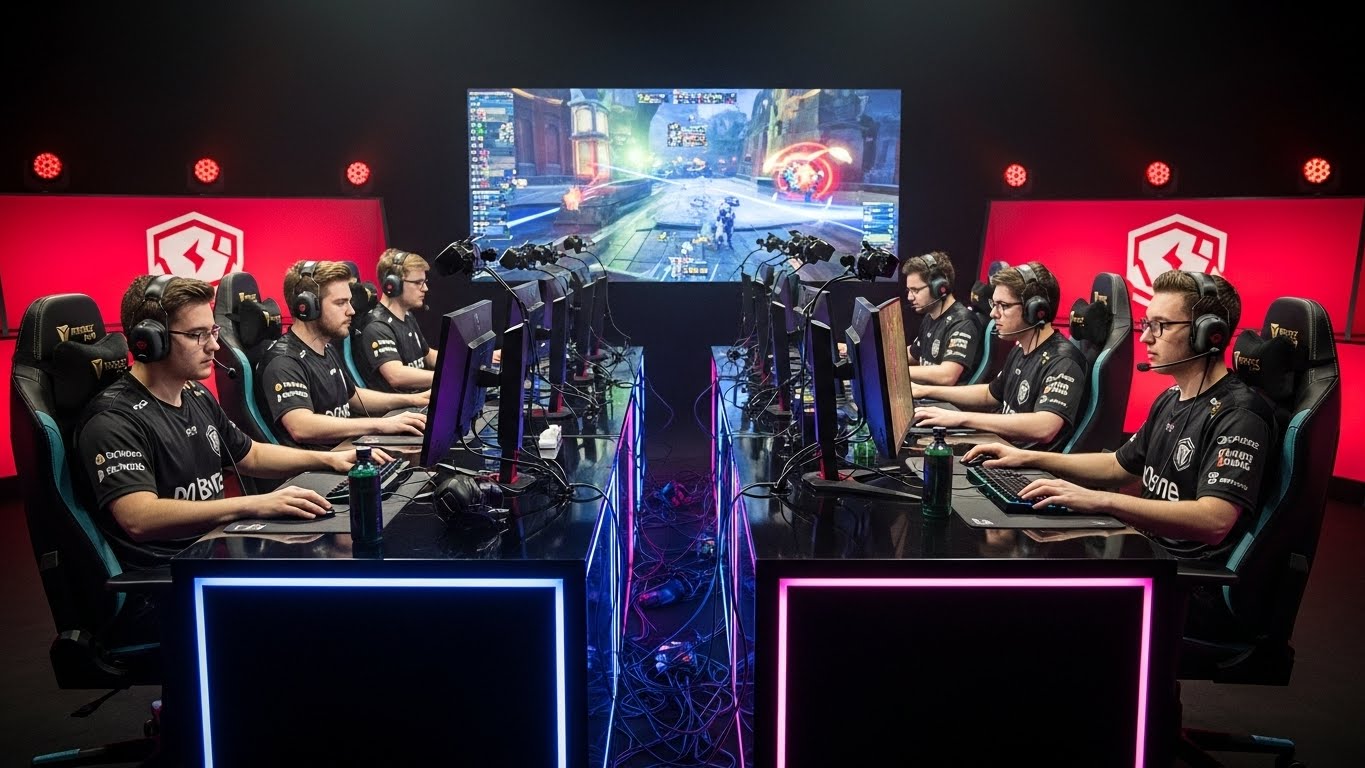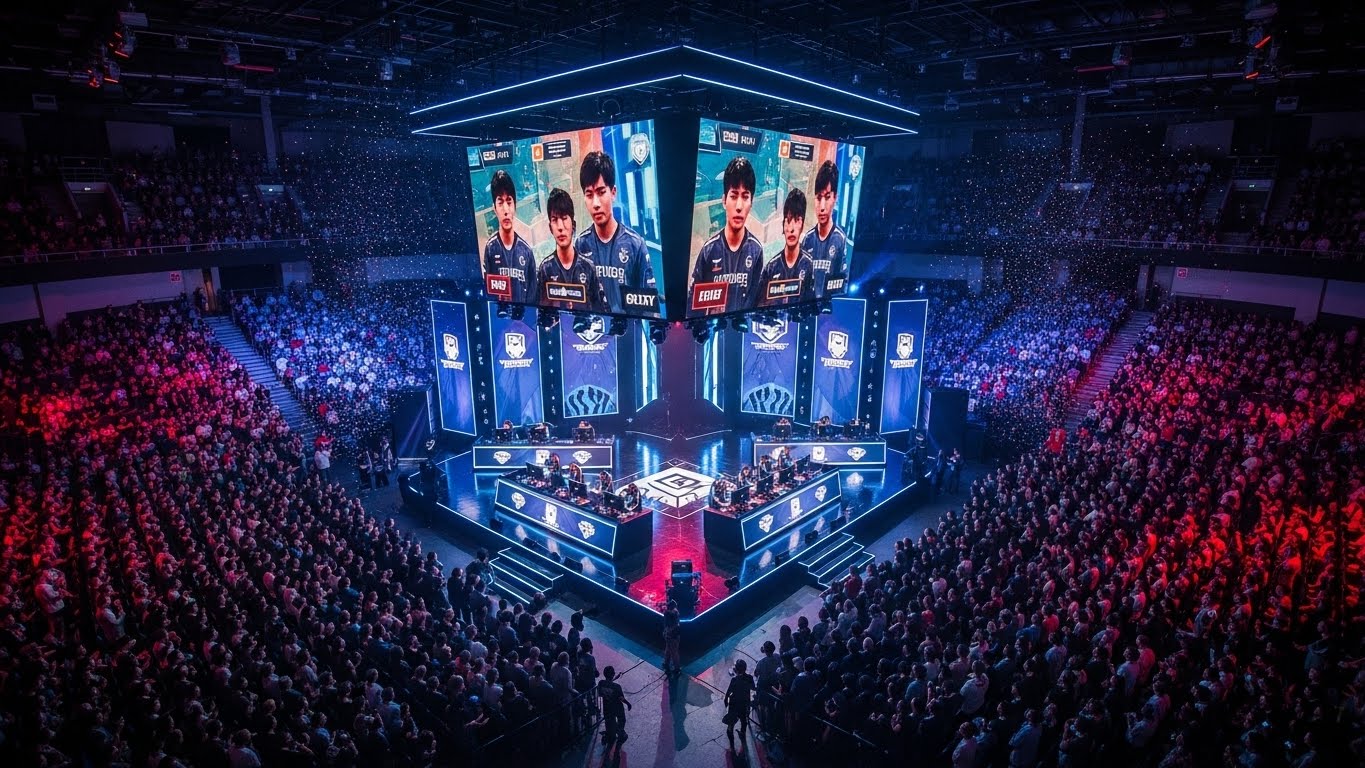Introduction
In recent years, eSports has transformed from a niche hobby into a global phenomenon. Once confined to a small circle of passionate gamers, it has exploded into a massive industry with professional teams, international tournaments, sponsorships, and a growing fan base. Whether it’s watching your favorite streamer compete in a live broadcast or cheering for a team in a high-stakes tournament, eSports is reshaping how we view competition, entertainment, and even career opportunities.
What began as casual gaming is now a legitimate career path for many individuals, with multi-million-dollar prize pools, global fanbases, and sponsorship deals that rival traditional sports. eSports has proven that video games are more than just pastimes; they are legitimate forms of entertainment, skill, and culture. But what does this rise in popularity mean for the future of competition, community, and the gaming industry at large?
The Evolution of eSports
The origins of eSports can be traced back to the 1990s, when competitive gaming started to take root in arcades and early online gaming platforms. Games like “Street Fighter” and “Quake” laid the groundwork for competitive play, but it wasn’t until the early 2000s that organized competitions began to take shape. Games such as “Warcraft III,” “StarCraft,” and “Counter-Strike” were some of the first to foster a global community of competitive players.
In 2000, the first “official” eSports event was held, and from there, the industry began to grow exponentially. In the 2010s, major eSports tournaments like the “League of Legends World Championship” and “The International” (Dota 2) began attracting huge audiences and multi-million-dollar prize pools. The rise of streaming platforms like Twitch further boosted eSports, allowing gamers to broadcast their play to thousands of viewers and, in some cases, build massive online followings.
Today, eSports spans various genres—from multiplayer online battle arenas (MOBAs) like “League of Legends” to first-person shooters (FPS) like “Counter-Strike: Global Offensive” (CS:GO) and “Overwatch,” and even real-time strategy games like “StarCraft II.” The eSports industry continues to evolve, with new games and tournaments emerging every year. What started as a hobby for the gaming community is now a full-fledged industry with professional leagues, coaches, analysts, broadcasters, and even specialized arenas.
The Rise of Professional eSports Leagues
One of the key drivers behind eSports’ popularity is the rise of professional leagues. Much like traditional sports, eSports has developed its own system of tournaments and leagues where players, coaches, and teams compete for titles, prize money, and global recognition.
“League of Legends” and “Dota 2” have some of the most well-known professional leagues. The “League of Legends World Championship” (commonly referred to as Worlds) is a yearly tournament where the best teams from around the world compete for the title of world champion. Similarly, “The International,” held annually in Seattle, has become one of the most prestigious eSports tournaments in the world, with prize pools regularly exceeding $30 million.
In addition to game-specific competitions, there has been a rise in eSports organizations that manage multiple teams across different games. These organizations sign professional players, offer coaching staff, and manage team sponsors, just like traditional sports teams. Organizations like Cloud9, Team Liquid, and Fnatic are now household names within the eSports community, and they have grown to rival the fame and influence of traditional sports franchises.
Even major cities around the world are beginning to establish dedicated eSports arenas. For example, in 2021, the city of Arlington, Texas, opened the Esports Stadium Arlington, a 100,000-square-foot arena specifically designed to host eSports events. As professional leagues become more established, the infrastructure for eSports continues to grow, with more investment from private corporations, governments, and major sports franchises.
The Appeal of eSports to a New Generation
One of the reasons eSports has grown so quickly in popularity is its appeal to younger generations. Traditional sports have been around for centuries, but eSports speaks directly to the interests and lifestyle of today’s digital-first, tech-savvy youth.
Young people are already immersed in the world of gaming. Video games have become one of the most popular forms of entertainment, surpassing even movies and music in terms of audience engagement. Many children and teenagers spend hours playing video games, and watching others play has become just as entertaining, thanks to live streaming platforms like Twitch, YouTube, and Facebook Gaming.
eSports offers something unique: it combines the excitement of sports with the creativity and interactivity of video games. Unlike traditional sports, where the rules are generally fixed, video games allow for endless creativity and innovation. Every tournament and every match offers something new—different strategies, new characters, evolving tactics. This sense of novelty keeps fans and players alike engaged and invested.
Moreover, eSports has created a unique community around gaming. Streaming platforms have allowed players to directly interact with their fans, creating a bond between content creators and their viewers. For many, watching professional gamers is just as exciting as watching a professional football or basketball game.
The Economic Impact of eSports
The eSports industry is booming, and its financial impact is hard to ignore. In 2020, the global eSports market was valued at over $1 billion and is projected to continue growing in the coming years. Sponsorships, advertising, media rights, and ticket sales are the primary revenue streams for the industry.
One of the biggest contributors to eSports’ economic growth has been sponsorship. Just like traditional sports, eSports tournaments attract major brands looking to reach a tech-savvy, engaged audience. Companies like Intel, Coca-Cola, and Mercedes-Benz have all invested heavily in eSports. In fact, some of the world’s largest corporations have partnered with eSports leagues and teams to boost their brand visibility and connect with younger consumers.
The rise of eSports has also opened up new career opportunities. Professional gamers can earn money through tournament prizes, sponsorships, streaming, and merchandise sales. Coaches, analysts, and broadcasters are also in high demand, as they play a vital role in the development of teams and the production of live events.
Furthermore, eSports has created a burgeoning job market for people with skills in technology, media production, and event management. From game developers to tournament organizers, the eSports ecosystem has generated thousands of new jobs, many of which did not exist a decade ago.
The Role of Streaming and Content Creation
One of the most significant factors in the rise of eSports is the role of streaming. Platforms like Twitch have become the go-to destinations for watching live gaming. These platforms allow players to stream their gameplay in real-time, providing viewers with access to a front-row seat in the world of competitive gaming.
For many professional gamers, streaming has become an essential part of their career. Not only does it allow them to connect with fans, but it also generates income through ads, donations, and sponsorships. Some of the most successful eSports players have turned streaming into a lucrative career, with millions of followers tuning in to watch their streams.
eSports content creators also produce a variety of videos that cater to different interests. Some create educational content, breaking down strategies and gameplay techniques, while others provide entertainment or humor through challenges and commentary. These content creators have become celebrities in their own right, amassing large fan bases and becoming influential figures in the gaming world.
Challenges Facing the eSports Industry
While eSports is undeniably growing, the industry still faces several challenges. One of the most significant issues is the lack of mainstream recognition. Although eSports is massive within the gaming community, it still struggles to gain the same level of recognition as traditional sports, despite its impressive fanbase and viewership.
Another challenge is the issue of mental and physical health for professional players. The intense training schedules, long hours of gaming, and high-stress tournaments take a toll on the mental and physical well-being of players. There is growing concern about the impact of gaming on the mental health of competitive players, and the industry is beginning to address these concerns by providing support for player well-being.
Moreover, the question of fairness in competition remains a concern. Issues like cheating, toxicity in online communities, and match-fixing have been part of the broader eSports landscape. These challenges continue to require the attention of game developers, tournament organizers, and governing bodies to ensure that eSports remains a fair and enjoyable experience for all.
The Future of eSports
The future of eSports is bright, with continued growth and mainstream acceptance on the horizon. We are likely to see even larger prize pools, more significant sponsorships, and greater investment from both traditional sports franchises and new media companies.
The integration of virtual reality (VR) and augmented reality (AR) into eSports could provide even more immersive and interactive experiences for fans and players. Additionally, as the internet infrastructure continues to improve, we can expect smoother, higher-quality streaming and a broader reach for eSports events.
Furthermore, the expansion of mobile gaming and the rise of mobile eSports will open up new avenues for competition and viewing. With mobile devices becoming more powerful and internet access improving around the world, eSports will likely continue to reach new audiences and markets.
Conclusion
eSports is more than just a trend—it is a cultural movement that is reshaping the way we view competition, entertainment, and technology. What started as a hobby for a few dedicated gamers has evolved into a global industry with millions of fans, professional players, and lucrative opportunities. From streaming platforms to professional leagues, eSports has created an entirely new landscape for entertainment and competition.



